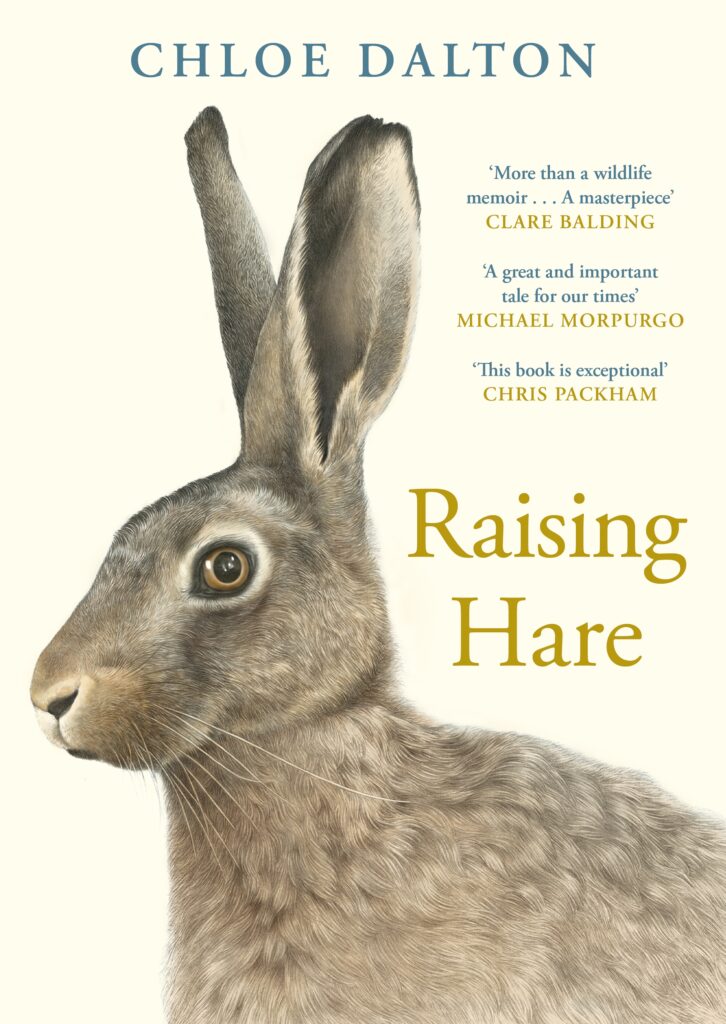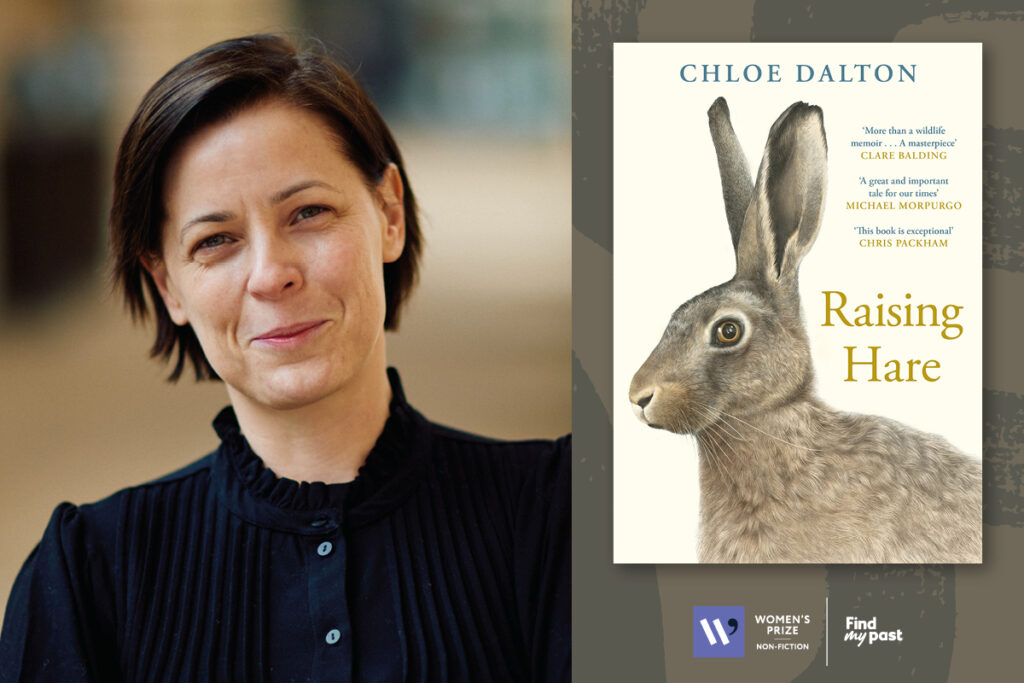Raising Hare by Chloe Dalton tells how one woman’s unexpected bond with a new-born hare completely changed her life.
Longlisted for the 2025 Women’s Prize for Non-Fiction, judge Dr Elizabeth-Jane Burnett says: ‘A charming and beguiling book that captures the unusual relationship between the author and the leveret that she rescues.’
To find out more about the book we spoke to Chloe about her writing, research and current reads.
How would you describe your book to a new reader?
I tell the story of rescuing and living alongside a wild leveret – a baby hare – and how the improbable bond we developed opened my eyes to the beauty of the wild.
Did you have any revelation moments when writing your book? When the narrative and your objectives all fell into place?
I remember an intense summer storm, a day when there was no going outside. I was working on the book, listening to the rain cascading off the roof. I looked up to see that I was surrounded by sleeping hares: the mother hare, stretched out in the sitting room, one of her wild leverets lounging on the sofa, and the other leveret outside, crouched on the windowsill flanking my desk. In that moment we were all just animals sheltering from the rain, lulled into sleepiness by the downpour, coexisting. My feelings in that instant and the sentiment I wanted to capture on the page were one and the same.
What is the one thing you’d like a reader to take away from reading your book? Is there one fact from the book that you think will stick with readers?
Female hares are almost unique in their ability to carry two separate pregnancies at the same time. They can fall pregnant while already carrying a litter! It is one of the many uncanny things about them that has led to them being associated with witches and witchcraft. But in actual fact, it is a sign of just how hard a hare’s life is. They have evolved this ability to try to offset the number of their young that die or are killed each year. There is a striking contrast between the reputation of hares as mad, crazy creatures and their actual dignity, strength and grace, observed at close quarters. Living alongside the hare made me think that if I can learn so much from the life and nature of a single brown hare, how much more do we still have to learn from the wild?
How did you go about researching your book? What resources did you find the most helpful?
In the London Library I found books on witchcraft, hunting and poaching; studies of hawks, foxes, grasses, herbal medicine; and accounts of rural myths and legends, all of which I relied on for an understanding of the cultural context and history of human-hare relations. I borrowed books on hedgerows and mushrooms, and the mathematics of rainbows. I came across a copy of Werner’s Nomenclature of Colours, a guide to describing and cataloguing colours in nature that Charles Darwin took with him on HMS Beagle. Being able to find all these books in one place was invaluable in research terms, as well as evocative and stimulating.
Which female non-fiction author would you say has impacted your work the most?
It’s hard to say. Many different female authors spring to mind, from Virginia Woolf in my student years to Martha Gelhorn in my work on foreign policy and war, Rachel Carson in her writing on nature and Chimamanda Ngozi Adichie on the experience and perspective of women today. But it feels invidious to single out any one person. Like any writer, I am the sum of all I’ve read. I owe so much to insights from countless authors, including many women.
What is the best piece of writing advice you have ever received?
My first real job was as a researcher to a Member of Parliament. In my first week, my father came across me sitting at home, early in the morning, worrying over the text of something I’d drafted. When I asked for help, he pulled up a chair next to me, took my pencil, and after a few moments, drew a steady line through every superfluous word on the page. He told me that in Parliament I would write for people who didn’t have much time to read, and that I should learn to convey my point as briefly as possible. I’ve come across various iterations of that advice in the years since. ‘Know how complicated it is and then state it simply’, Hemingway wrote. But my father taught this to me first, and I’ve never forgotten it.
Is there a non-fiction book you recommend all the time? If so, what is it and why do you recommend it?
The Unwomanly Face of War by Svetlana Alexievich. It tells the stories of some of the nearly one million Soviet women who voluntarily served on the Eastern Front – the most brutal flank – in the Second World War. They fought in hand-to-hand combat, and dragged wounded men from the turrets of burning tanks. But, after the war, they were intentionally forgotten. It’s war told from the female point of view. I admire the way Alexievich removes herself from the story to allow the women’s voices to speak for themselves, unfiltered. It might seem a strange book for me to single out, given that I’ve written a book about nature, but it reflects the work I did for many years – really up until the point that I met the hare – which was focussed on what war does to women.
What are you currently reading?
The Dream Hotel by Laila Lalami, and Medicine River by Mary Annette Pember.









